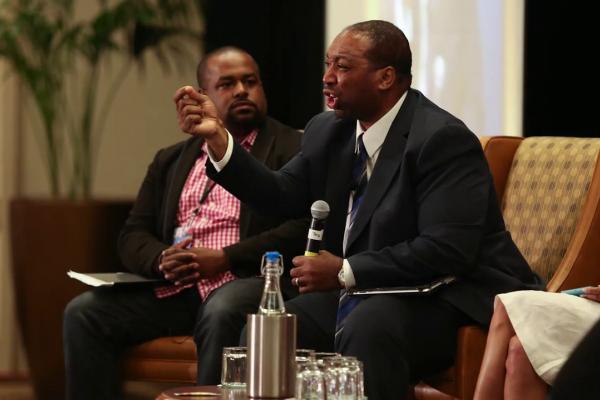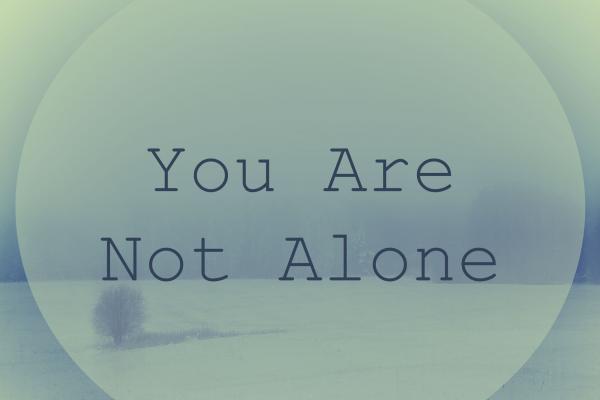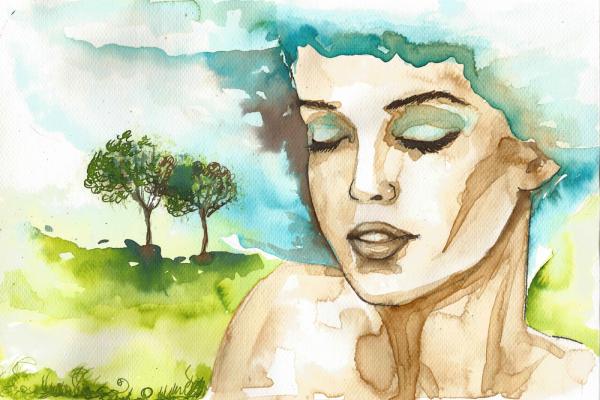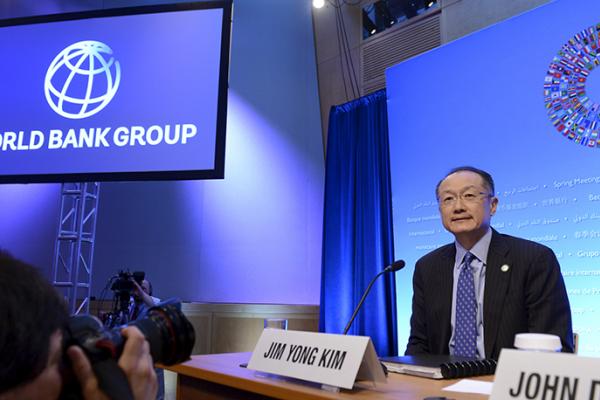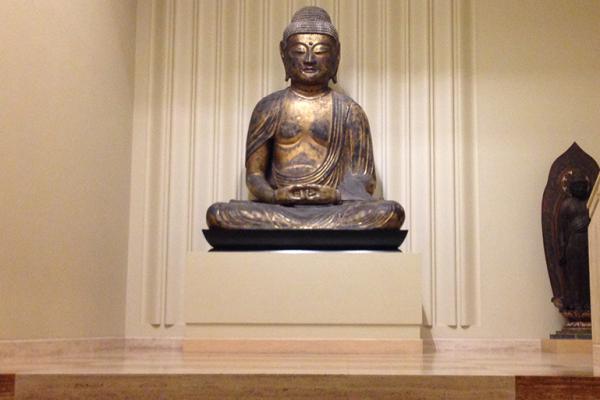Virtue is worth thinking about. We should think, carefully, about the kind of person we want to be and the kind of habits we want to develop. In The Road to Character, Brooks asks these questions of us, rightly urging us to be concerned with developing an inner moral life of virtue and integrity. Unfortunately, his self-focused attitude toward morality leaves little room for grace for the morally weak — which is all of us.
When asked directly about the relation of grace and individual agency, at a recent Trinity Forum event, Brooks confessed that he simply didn’t know — that he had no idea which of the two should take precedence.
I don’t know Brooks’ personal faith, nor do I intend to cast aspersions on his morality. Still, he panders to all of my worst inclinations in writing The Road to Character as a stoic moral theology, with only slight glimmers of grace to lighten the way. Brooks holds up several vastly different exemplars of a moral life, from Montaigne to Eisenhower, who are united in a certain integrity and humility — an unwillingness to be governed by circumstances that are outside of our control, while focusing on the things that we can.
Brooks reduces God to being a helper needed by some, while others are perfectly capable of struggling through their moral issues alone. To Brooks, a self-built journalist should be imitated as much as a grace-oriented social worker, or a novelist who was motivated by adulterous love as much as a bishop who was driven by love for God. In his moral universe, there are many ways of developing yourself. The better ones focus on building virtues rather than a resume, but all provide pathways for individual development.
This tiny Kurdish village outside the city of Van in Turkey’s southeast is home to the ruins of a once-famous 11th-century Armenian Christian monastery.
Known to Armenians as Varagavank, it thrived as a place of worship until Turkish forces looted it and murdered parishioners in the mass killing sprees of 1915.
Today, the roof is collapsing. Toppled stone columns lie nearby. And with no signage, there is no acknowledgment it was once a celebrated church for Armenians.
Varagavank is one of hundreds of disappearing physical reminders of a community whose history in present-day Turkey goes back more than 2,000 years. Over the past century, the Turkish government — in writing its own narrative of what Armenians call genocide — has destroyed many Armenian churches, homes, schools, and cemeteries, or allowed them to fall into ruins. They are sites other countries might consider valuable antiquities.
“The term we use for this is ‘cultural genocide,’” said Vahram Ter-Matevosyan, a historian at the American University of Armenia in Yerevan, Armenia’s capital.
“We consider what is happening to many churches a continuation of the genocide which started at the beginning of the 20th century. It is painful, utterly painful.”
Historians and visitors have noted holes in the ground of Armenian historical sites throughout Turkey, evidence of widespread rumors that Armenians buried their riches before fleeing.
Hermine Sayan, an Armenian who lives in Istanbul, said her heart was broken when she visited what remained of a destroyed church in Malatya, a city in eastern Turkey, a few years ago.
“We stood together saying our prayers, and we were crying,” said Sayan, whose grandparents survived the genocide.
On April 24, Armenians worldwide will commemorate 100 years since almost 1.5 million of their ancestors died in the last days of the Ottoman Empire, in massacres, by starvation or during forced death marches into the Syrian desert.
It is perhaps the most controversial component of the national debate over same-sex marriage: Who should raise children?
The judge who wrote the decision upholding gay marriage bans in four Midwest states gave at least some same-sex couples a shoutout last fall, even while ruling against them. His ruling is being appealed to the Supreme Court, which will hear oral arguments April 28.
Judge Jeffrey Sutton’s words have done little to quell the war of statistics and academic studies that has raged for years over the relative child-rearing skills of gay and straight parents.
Dozens of briefs submitted to the court cite scores of scientific studies on the subject. Some show that children raised in same-sex households fare no worse than those raised by mothers and fathers. Others say the differences are stark in areas ranging from emotional development to high school graduation rates and success at work.
The judge who looked most closely at the two sides’ arguments wasn’t Sutton but U.S. District Judge Bernard Friedman, who conducted a two-week trial last year to consider April DeBoer and Jayne Rowse’s lawsuit against Michigan’s gay marriage ban. He came down firmly on the side of studies showing no difference between gay and heterosexual child-rearing.
Researchers claiming negative outcomes for children of same-sex couples “clearly represent a fringe viewpoint that is rejected by the vast majority of their colleagues across a variety of social science fields,” Friedman wrote.
While rejecting the “fringe” label, some conservatives acknowledge that sufficient research has not been done to show that same-sex parenting harms children’s development. They contend the question remains open to debate.
Several weeks ago at the Minnesota State Capitol building, I and a host of others met with senators and representatives to lobby them on environmental issues. When I met with one senator he said he understood the issues and was on my side. It was a love fest. But when asked about working with the Republicans, the love fest ended.
He started rattling off how the other side will not listen, how there is no communication with them, how they are funded by the Koch brothers and will not compromise or even consider any proposals but their own, and so on and so forth. I do not doubt that he was speaking from personal experience, but if he only sees the other as bull-headed then that is exactly what he will get.
As he spoke I kept saying to myself, "There has to be another way of doing this…"
Last week I discovered "a more excellent way" when I re-read The Journal of John Woolman, the spiritual autobiography of the colonial Quaker who I describe as America’s first social mystic. It my seem odd to look to a colonial Quaker as the model for amending climate change — I say amend because we have already changed the climate; the best goal now is to stop further change and amend our way of live — but his model/witness may be the exact model/witness we need.
In my work on environmental causes I have acted primarily from a place of loss, sorrow, and anger, centering on the loss of my family farm in northern West Virginia. In the mid-1980s, the farm was sold to a coal company who stripmined the farms and destroyed the community. I had had dreams of farming that land.
But if I dig deeper through the loss, through the sorrow, and through the anger, I arrive at a place of love. I love creation, I feel I am a part of it, and I want it to flourish because if creation flourishes, all flourishes.
Here is where Woolman’s witness comes in. His social conscience was formed because Love was the first motion. He was simply responding to that Love.
How did he respond? Eighty years before the modern abolition movement of the 1830s, John Woolman began his personal mission to end slavery amongst Quakers in the American colonies.
Last summer, Sojourners hosted The Summit: World Change Through Faith & Justice. It was a powerful gathering of 300 leaders that convened on important issues of faith and justice. The Summit is a chance for leaders to grow, learn, and be encouraged. It is a rare opportunity to be supported by peers who understand the pressures and struggles of public ministry and leadership.
I’m pleased to announce that Sojourners is hosting The Summit 2015 this June in Washington, D.C. It’s poised to be this year’s gathering of cross-sector leaders joining together to effect change in this country and beyond.
And I need your help. We need to you to nominate the best leaders that no one has heard of to attend The Summit . She could be a seminarian or young pastor, an entrepreneur creating jobs, or a civic leader solving problems. He could be an academic, an artist/musician, a philanthropist, or a local leader who has been working tirelessly for years to knit a community together.
That leader could be you. Fill out the nomination form and tell us why.
If you’re on social media and have a certain number of contacts of childbearing age, chances are good that there are times when it seems that every other post is announcing a pregnancy, the results of a gender-revealing ultrasound, or a birth.
Chances are also good that you don’t see many status updates about infertility, about the difficult “two-week wait” between ovulation and the time that a home test can announce an early pregnancy — or a woman’s monthly period can let her know that her wait isn’t over.
This week — April 19-25 — is National Infertility Awareness Week. For 2015, the theme is “You Are Not Alone.”
That’s an important message for people struggling with infertility.
“It’s a very private struggle,” one woman told me. “It’s a struggle not many people are privy to, so you put on a smile and act like all is well when really you’re in a constant state of grief.”
“It isn’t only about the second bedroom remaining empty or the ache of your empty arms when you see a friend cradling her newborn. Our culture — from our tax policies to our churches — revolve[s] around families with children. When people experience infertility, they grieve what’s missing from their personal lives and are also shut out from the social experience of parenthood,” says Ellen Painter Dollar, a writer who focuses on reproductive health and ethics.
Yet infertility affects more people than you might think: 1 in 8 — 7.4 million — U.S. women of childbearing age have trouble getting pregnant or sustaining a pregnancy to term. Infertility — defined clinically in male-female couples who don’t become pregnant after a year of unprotected sexual intercourse — is caused by many different factors and confluences of factors. Sometimes, perhaps as much as a third of the time, no identifiable cause can be found.
Today, many of you will remember to celebrate me, learning or teaching your children about the importance of reducing waste and recycling, conserving energy, or keeping my land, air, and water clean. I truly appreciate the efforts you make for a struggling old lady for whom such acts of consideration bring rays of hope. As you know, my health has been deteriorating rapidly of late, and I struggle to care for all 7 billion of you as I would like. I long to give you sweet, fresh air to breathe, clean water for drinking and bathing, fertile soil for growing food, majestic mountains to revitalize your souls, and much, much more. But I am not the girl I used to be, and much of what I had to give in my youth has been spent faster than I ever could have imagined. So please accept this letter as an expression of my affection; I wish I had more to give.
I am reaching out to you, my children, because I know you love me and I know you need me. Some of you try hard to care for me and nurse me back to health. I value all of your efforts. But there is something I need from all of you that is far too often overlooked when it comes to the care I need to survive. For the truth is, I am dying. Your Father cares for me but has also entrusted me to your care, and thus my hope for a future lies in you. So I am pleading with you, my children, to remember me and remember our need for each other. And I have an urgent request of all of you that could perhaps do more to revitalize my health than anything else you could do, though I rarely hear it mentioned:
Stop killing each other!
The World Bank is teaming up with global religious leaders in a 15-year effort to end extreme poverty by 2030.
About 35 religious groups worldwide, including Bread for the World, Islamic Relief International, the Religious Action Center of Reform Judaism, and Sojourners, endorsed the call to action. Supporters include Christians, Jews, Muslims, Baha’is, and others.
“Our approach to this staggering need must be holistic, rooted in the spiritual visions of our respective faiths, and built on a shared recognition of the intrinsic dignity and value of every life on Earth,” the call said.
Observers say it’s the first time the World Bank has tapped the reach and resources of religious groups in combating extreme poverty — partly out of a realization that the work is too big for any one institution, and also in hopes of limiting unnecessary duplication between the World Bank’s ideas and those of various religious groups.
“There’s a real convergence between these dual goals of the bank and many of the commitments and convictions of religious institutions and organizations,” said the Rev. Adam Taylor, a Sojourners and World Vision alum who now oversees faith-based initiatives at the World Bank.
During an April 9 teleconference, Wold Bank President Jim Yong Kim said the number of people living in extreme poverty — living on less than $1.25 per day — has fallen from 2 billion in 1990 to 1 billion today. And he strongly believes that with enough support, that figure could be eliminated in another 15 years.
But Kim said that in order to reach the goal, there will be two important aspects to the fight to end poverty: gathering evidence on what works and what doesn’t work in combating poverty, and enlisting the aid of religious communities.
“I believe that some of the most important leaders in the movement to end extreme poverty will be people of faith, people who are motivated fundamentally to help the most vulnerable among us,” Kim said.
I just learned about the U-curve — the basic psychological insight that most people get happier around age 50.
Judging from a variety of survey data from multiple cultures, people tend to be happy in their 20s and early 30s before hitting a less-happy trough in their late 30s and 40s, then returning to happiness in their early 50s. The line graph for this looks like a “U” stretched out on both sides, or, if you prefer, like a smile.
The predominant explanation seems to be that when we are young, we are ambitious and optimistic.
We feel good physically and have our lives in front of us. By our 40s, we start to worry about things we have not done yet, stymied by the realization “this” might be all there is. But by our early 50s we move on toward thinking “this” is not so bad after all.
At 54, I’ll admit my own experience seems to fit the pattern. I have less energy, my career has likely plateaued, and my parents will probably soon need closer care, but I still feel more satisfied. Is this because I got enough of what I desired? Or is it, perhaps, because I stopped desiring so much, or at least started desiring different things?
I teach comparative religion, so I know who spoke most clearly about satisfaction and desire. The Buddha taught these Four Noble Truths:
- Life is dissatisfying.
- Dissatisfaction is caused by desire.
- Dissatisfaction will end only when the desires are extinguished.
- The way to extinguish desires is to follow spiritual discipline. (For the Buddha, spiritual discipline meant the Eightfold Path).
I’m not kidding anybody: I have not extinguished all my desires. And I do not have much spiritual discipline. But maybe life is adjusting my desires whether I asked for it or not.
Hundreds of immigrants and advocates from across the country gathered in New Orleans last week in support of President Obama's executive action programs on immigration. On April 17, the 5th Circuit Court heard oral arguments on the injunction filed in Texas v. the United States, which seeks to halt implementation of the executive action across the United States.
In February, federal district court Judge Andrew Hanen issued an injunction which temporarily delayed the extended 2012 Deferred Action for Child Arrivals (DACA) and Deferred Action for Parental Accountability (DAPA) programs — programs that could protect as many as 5 million undocumented individuals.
A ruling is expected to be released within a few weeks but could come as early as this week.
The Department of Justice and many immigrants’ rights advocacy groups, including many in the faith community, have been diligently working to protect DAPA and DACA and demonstrate the negative impacts — including economic costs — that Judge Hanen’s ruling has created for communities across the country.
Fortunately, the procedure to lift the injunction has been fast-tracked by the 5th Circuit Court, meaning that the judicial process has been sped up given the urgency of the overall case. Carl Tobias, a law professor at the University of Richmond, believes that the decision to accept the fast-track of the injunction is positive for the federal government because “it shows how the 5th Circuit seems to recognize that it is a very important case.”




